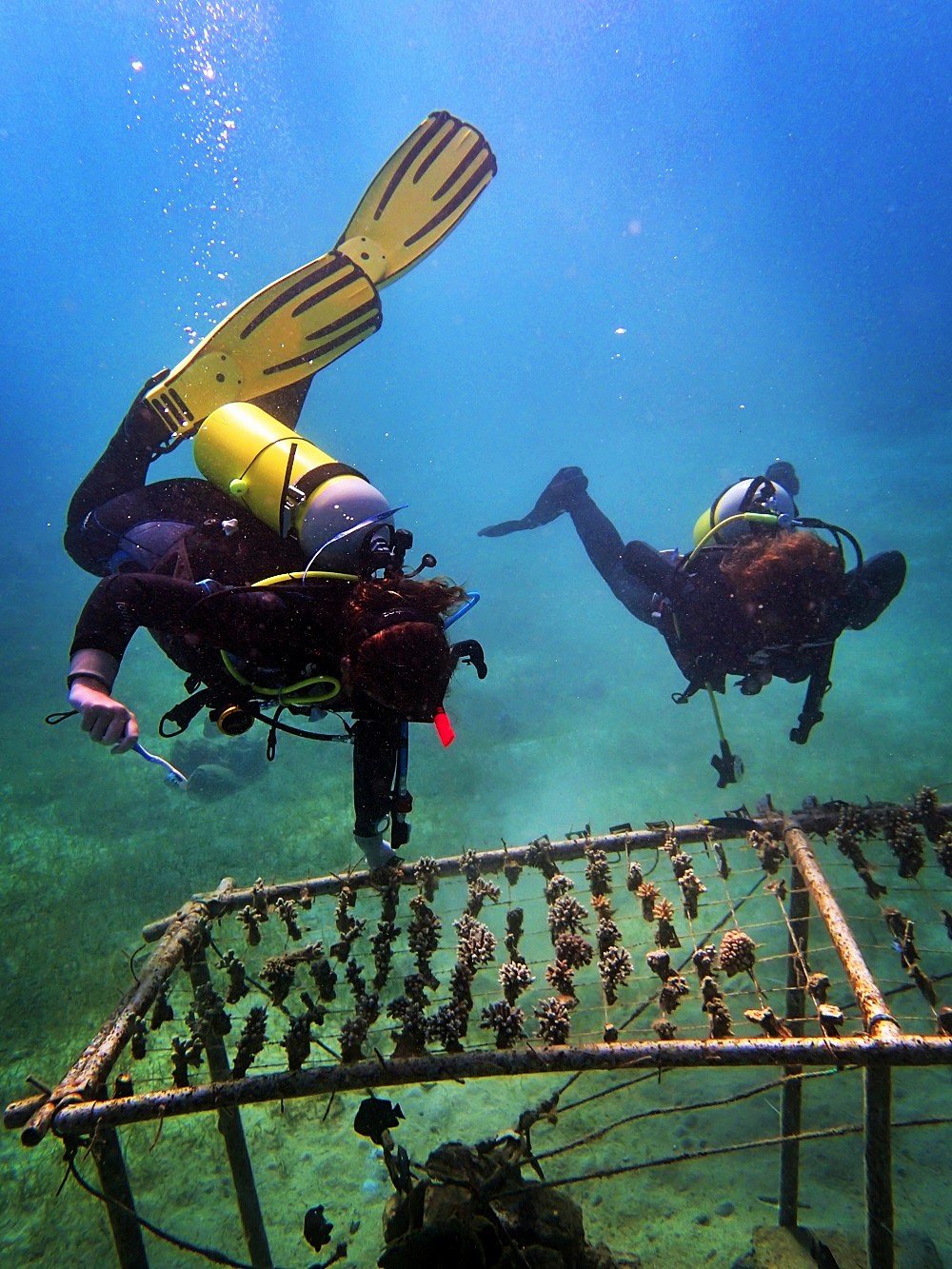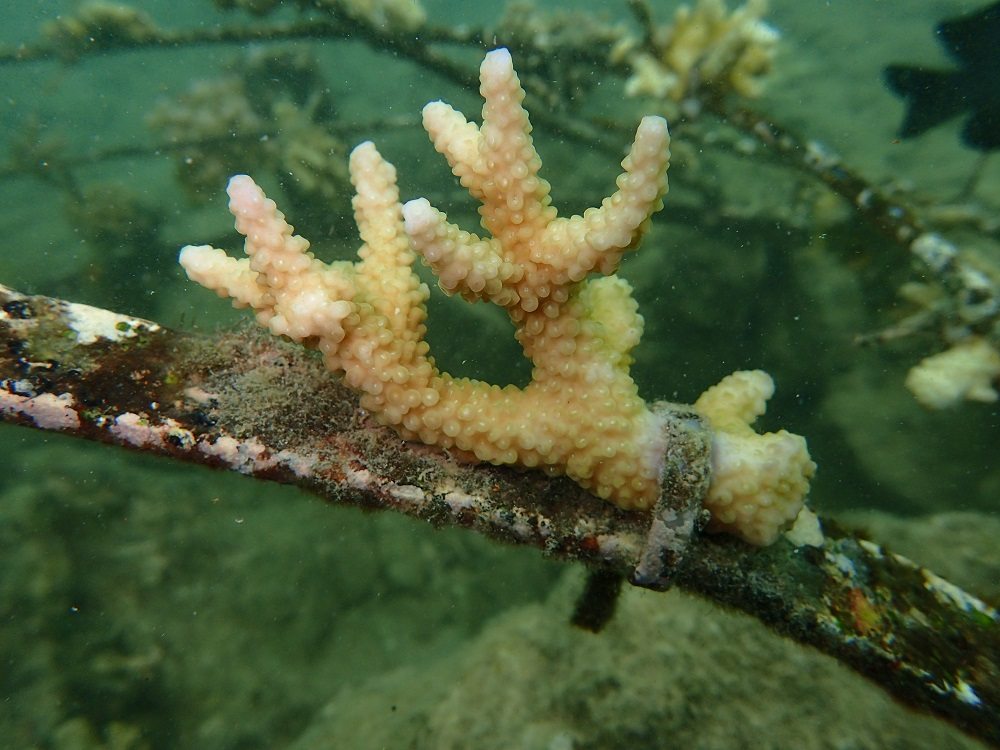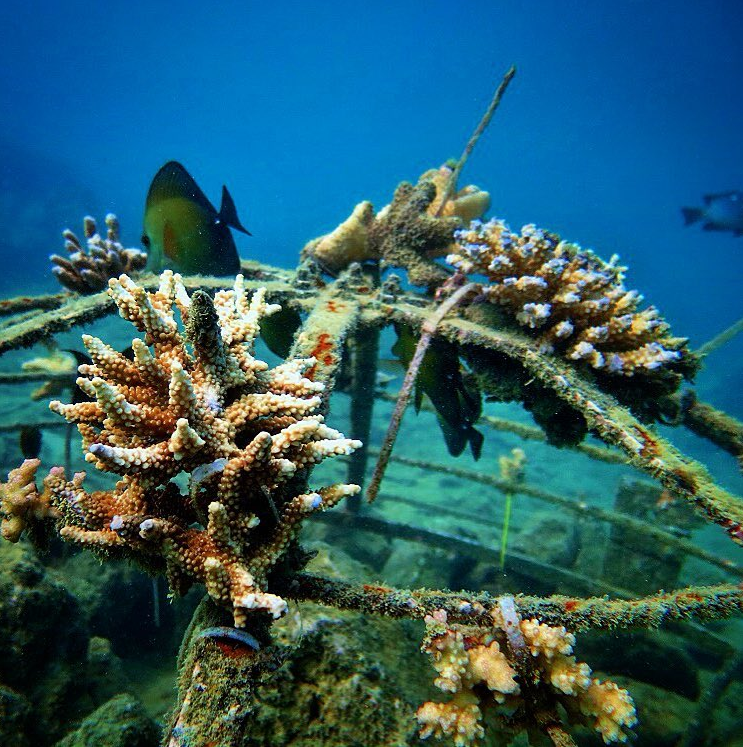We adopt a two-step process known as ‘coral gardening’ to actively restore degraded reefs
Since the majority of coral reef habitats within the bay have been heavily degraded due to bleaching, sedimentation, and over-fishing, it is imperative to implement an active,
sustainable and widespread restoration programme in order to prevent total collapse of this vital ecosystem. Therefore, we have been trialling and implementing a coral reef restoration programme in the Bay of Ranobe. This programme aims to assist the natural recovery process of degraded coral reefs by adopting a two-step restoration protocol known as ‘coral gardening’.
Step 1:
The aquaculture of small coral fragments known as ‘corals of opportunity’ (broken coral pieces salvaged from seagrass beds, reefs, and fishing nets that would otherwise die) takes place in special coral nurseries in the Rose Garden marine reserve. Coral fragments are grown in the nursery to sizes suitable for transplantation (which takes between 100-400 days), with regular cleaning maintenance by our science team to ensure that they are not overgrown by algae.

Step 2:
Nursery grown coral colonies are then transplanted onto degraded reef sites either directly or via simple artificial reef structures to stimulate natural regeneration and recovery, and to restore habitat complexity.
Our series of pilot projects have been very successful to date and have indicated that this is a promising technique for restoring degraded reefs in this bay. For example, after just 6 months, over 90% of coral fragments transplanted on to simple metal structures had survived, 30% had self-attached to the structures, and natural coral recruitment was evident on the degraded reef below the structures.

We intend to expand coral nursery cultivation and transplantation across degraded reefs in the bay. Given the enormous pressure these reefs are under, we are effectively giving them a helping hand to re-establish, grow, and ultimately persist in an increasingly stressful and competitive environment.



